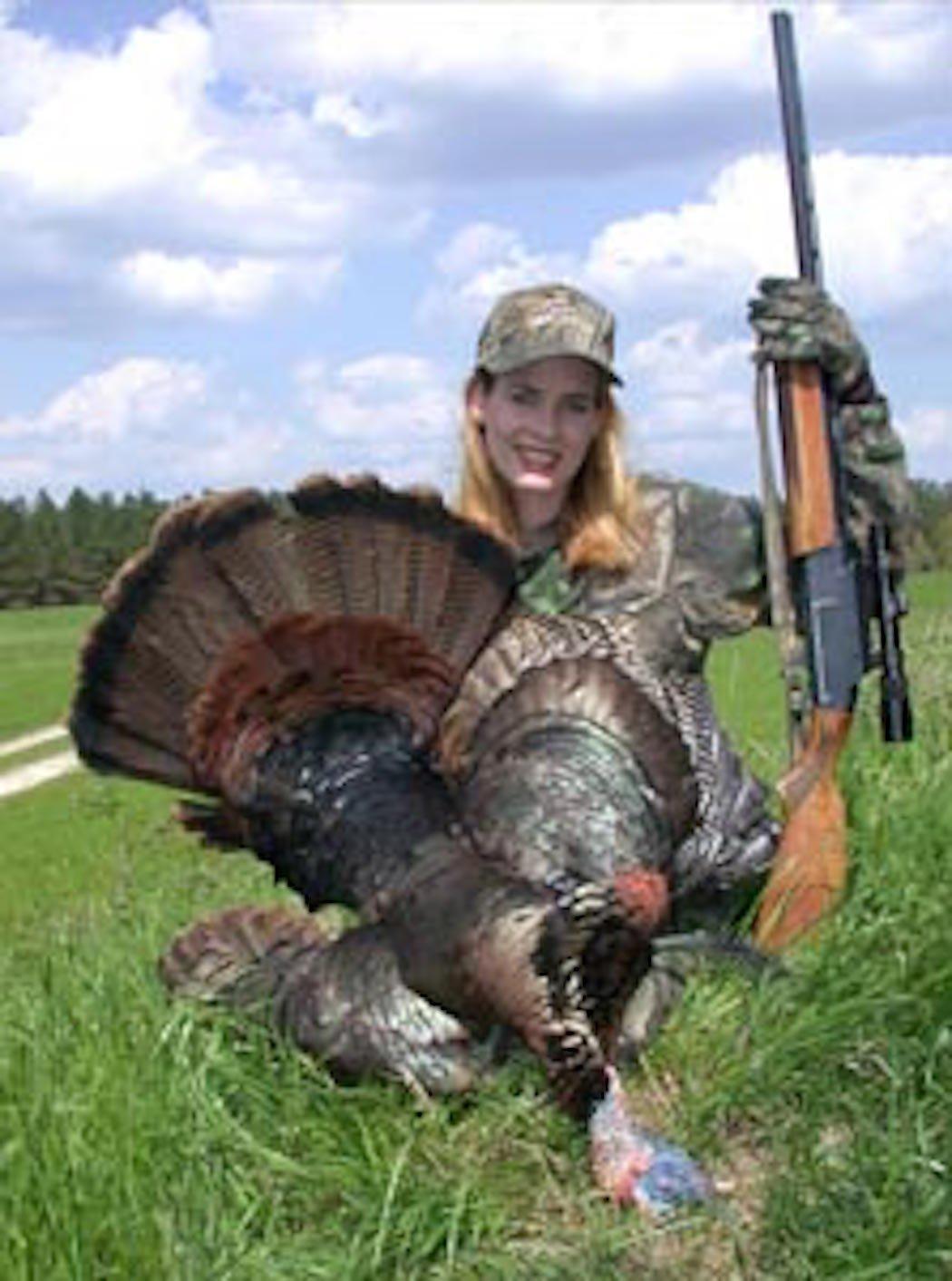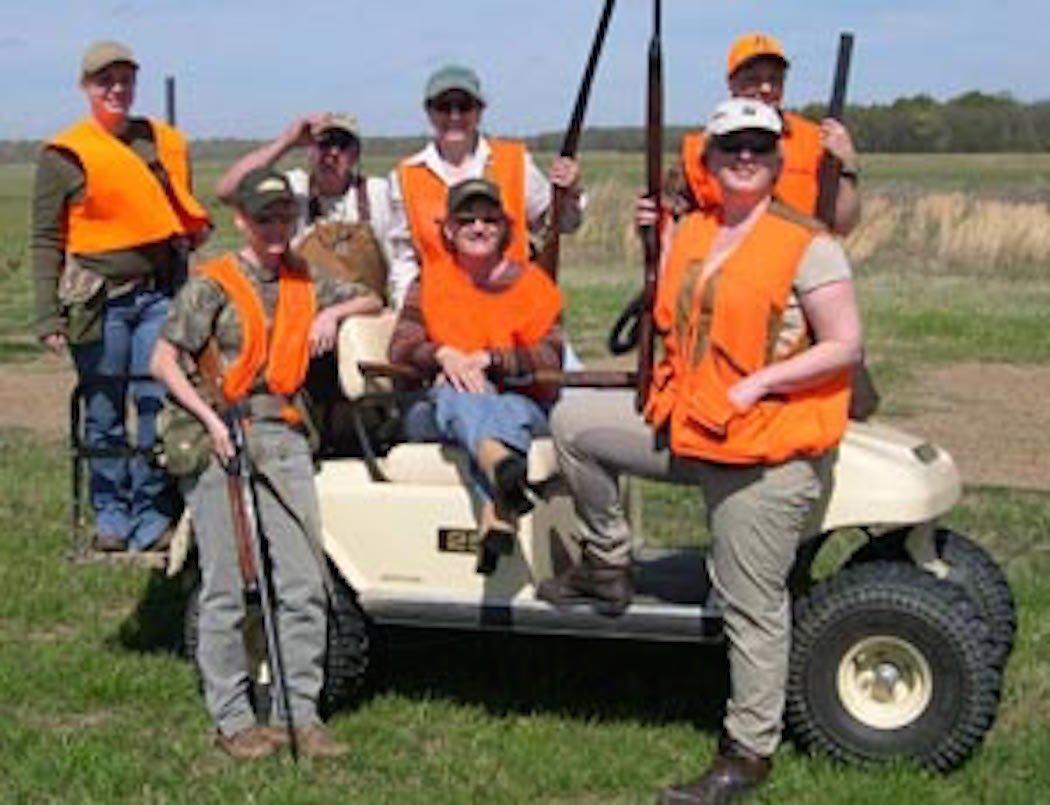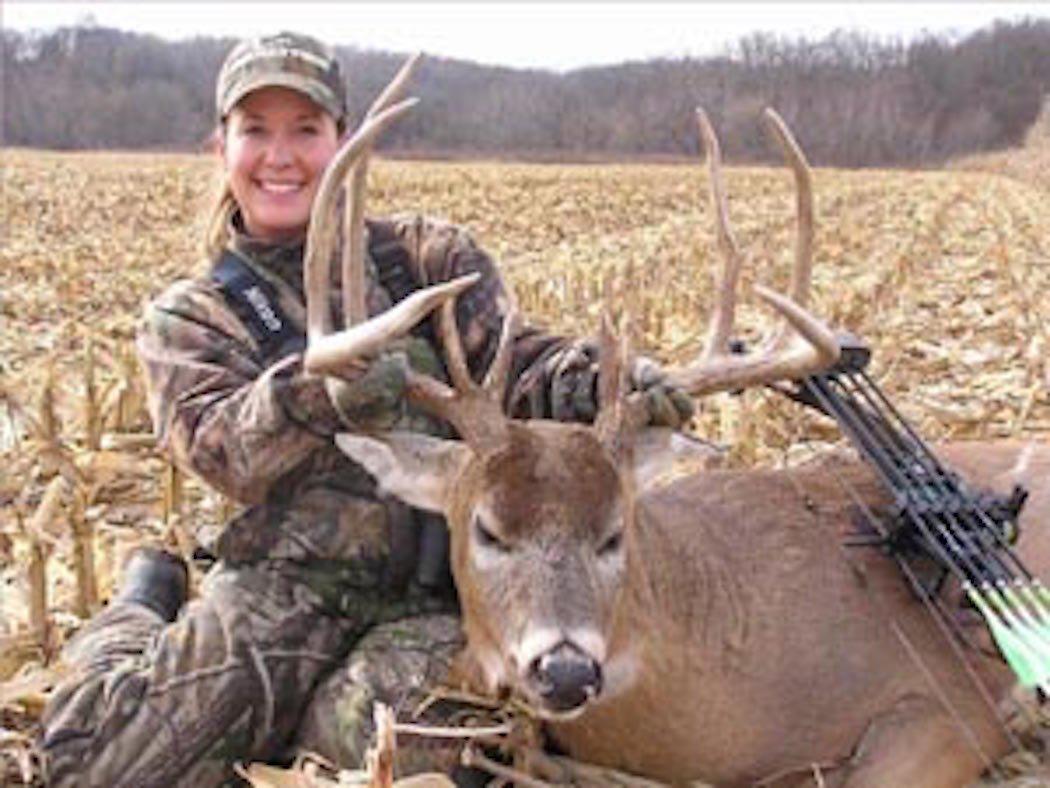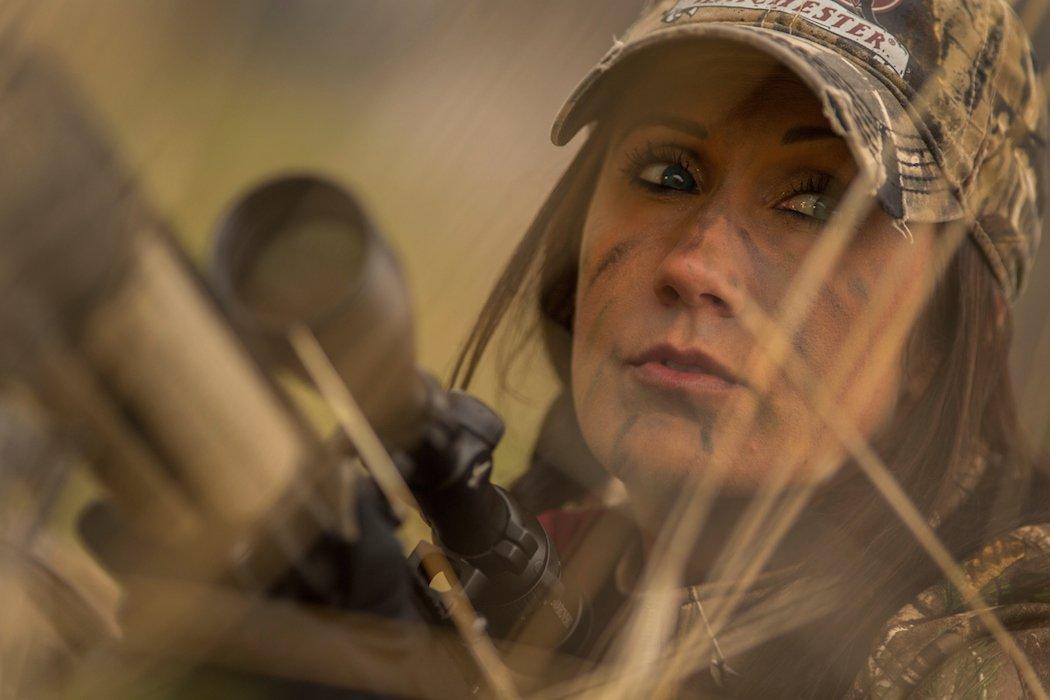Ladies, What Were Your First Harvests?
For women and most men too, there's an overwhelming rush and feeling that comes on strong after killing an animal. Both sexes will benefit from these words.
My father James was an excellent teacher when it came to all things outdoors. He loved hunting and wanted to share his passion with his only child. But, there was a problem. I was a tender-hearted youngster. I loved animals and wouldn't dream of taking one's life. I even made him release the fish we'd catch during our weekend outings. My father understood his sensitive child and knew that pressuring me to take an animal would be the worst thing he could do.
Even though I didn't want to hunt, I loved spending time in the woods with my dad. So, throughout my kiddie years, I accompanied my father on many of his hunts as an observer only. After graduating from high school, I went off to college with the intention of becoming a veterinarian. But like many if not most college students, my future followed a different path than the one I initially wanted to pave. I became a journalist instead. When I returned home from college, I started volunteering at Alabama's Wildlife Refuge Center. I spent most of my time there feeding orphaned animals and helping to rehabilitate injured raptors. I loved my work with the animals and found it very educational and completely rewarding.
One evening at the refuge, I overheard another volunteer discussing his upcoming deer hunt. There he was feeding a bottle to an orphaned fawn and talking about his love for deer hunting. That's when it dawned on me. I can be compassionate toward animals, give back to nature and enjoy hunting as well.

I met up with turkey hunting expert Brad Harris and some women for a three-day turkey hunt in Missouri. Prior to the hunt I made up my mind that if I had the chance to take a turkey, I would do so. Well, my chance came that first day. Harris called in a bird for me, and I took the shot. The bird went down and my heart rate soared.
Harris and I ran to the downed bird. As I looked down at the fallen bird, I felt a twinge of sadness, which apparently showed up on my face. Harris responded with an understanding smile. Upon seeing his reaction, an overwhelming sense of accomplishment and pride welled up inside of me. I had finally become the hunter that would make my father proud (well, even more proud than he probably already was of me). That experience gave me a renewed appreciation for the opportunity to hunt wild creatures as my ancestors have done for generations. Although I did feel a little bit of the hunter's remorse, hunting and taking an animal felt very natural to me, and I continue to enjoy taking part in this pastime today.
A Range of Emotions
As women who hunt, we're often afraid to talk about or express our feelings after a kill, especially after our first kill, and especially in front of men. Many women didn't grow up hunting, so the experience can be overwhelming to say the least. We express our emotions differently than our male counterparts, and we worry that if we cry, they'll consider us wimpy, and if we're too excited, they may think of us as cold-hearted.
Men that hunt with their girlfriends, daughters or wives should take into account the emotional differences between men and women. Whether a woman cries a river of tears or screams with excitement at the top of her lungs after a kill, especially a first kill, she should feel free to express those emotions as she desires. If she robs herself of this inward expression, she misses out on the true essence of the hunt.
The following women experienced an array of emotions after their first kills. None of them are ashamed of their reactions. They happily share their experiences in an effort to inspire other women to not be embarrassed by their first-kill emotions and to give men a little bit of insight into a woman's perception of the hunt.
PR Lady Sheds a Tear
Karen Lutto, president of Lutto & Associates, Inc. (a public relations firm in the outdoor industry), said to this day she still feels a great sense of sadness after killing an animal. I personally believe that I feel so sad because of the immense respect I have for the animals that I choose to hunt, Lutto said. I actually cried after taking my first few animals. I was excited, proud and sad all at the same time.
Last spring, Lutto took her daughter Ashley on her first hunt. Like me, Ashley also felt sad after she shot her first doe. She struggled with her emotions and didn't really understand why she felt the way she did. I explained to her that it's okay to cry and feel sad after you take an animal's life. As Ashley and I continue to hunt, together we have developed a better understanding and appreciation for all that is involved with the hunt -- including our emotions.
Clean Kills Spell Relief
Some female hunters say the fact that they were able to make clean kills affected the way they responded emotionally to their first kills.

I wondered if the gobbler would get close enough for me to shoot, Pankey said. I worried about judging the distance properly, and I worried about injuring the bird. I was a nervous wreck. But I took the shot and downed the gobbler. I was so relieved that I was able to drop the bird and not have to worry about it suffering and falling prey to other wildlife.
Once she realized she had made a clean kill, Pankey was elated with her accomplishment. I take hunting very seriously and practice with my firearm on a regular basis to decrease the odds that I'll wound an animal. Knowing that I'm doing all I can to make a clean kill makes me a more confident hunter. The more a woman practices and familiarizes herself with her firearm or bow, the more confident she'll be in the woods, and the more likely she'll make a solid kill. Injuring an animal can be a pretty traumatic experience for anyone.
Family Ties That Bind
Women who grew up in hunting families often experienced hunts and the harvesting of animals by family members at a very early age. So the feelings they often express after a first kill are those of accomplishment and pride.
Ginger Morehead, famed female archer and Realtree pro staffer, took her first deer when she was just seven years old. I was raised in a hunting family, so hunting came very natural to me, Morehead said to me at a recent camp we shared. I was absolutely thrilled to death the first time I took a deer. My feelings about hunting have evolved as time has passed. Now that I'm older, I take more time to consider the majesty of the whitetail. As an adult, I still love hunting, but I've gained more respect for the animals I harvest.
Lisa Metheny of Farmersburg, Indiana, said she felt nothing but happiness when she took her first deer. I grew up hunting with my family and was raised to feel pride for harvesting an animal. It was an honor to take an animal in our family. We utilized the deer we took, so I didn't have a hard time harvesting one. In fact, the first time I took a deer, I felt a great deal of accomplishment because I had practiced hard for it and was able to take the animal cleanly. I just thanked God for that magnificent animal. I was in awe of the entire experience.
Sue Averette of Coker, Alabama, one of six girls and three boys, said hunting in her family was a necessity.
We hunted for food, Averette said, So I was used to hunting and all that was involved with the sport. I took my first doe when I was probably 18. Back then, points didn't matter. I was just thrilled to go out and take a deer and contribute to providing for my family. I felt nothing but exhilaration. Although we continue to eat venison, deer hunting is no longer a necessity but a sport for my family.
We're Helping Wildlife

Kandi Kisky, co-owner of Kisky Productions and Realtree pro staffer, grew up in a non-hunting family and hunted for the first time when she met her husband Don 17 years ago. She said Don was so passionate about hunting that she thought maybe there was something to it.
Don always brought across the importance of hunting for controlling the herd, Kisky proudly said. I took my first animal -- a turkey when I was six months pregnant. I didn't feel any remorse, perhaps because I understood that hunting was important for a healthy wildlife population. I was so excited about my first turkey that I was instantly hooked on the sport. Each year my passion for hunting gets stronger.
At the End of the Day
No matter a woman's reaction -- happy, sad, boastful or calm, her first-kill emotions are nothing to be ashamed of. These women are proof that by remaining true to yourself and to your emotions, you remain true to the hunting experience.
Editor's note: This was originally published on July 20, 2006.
Are you a hunter thirsty for knowledge? Check out our stories, videos and hard-hitting how-to's on big game hunting.







